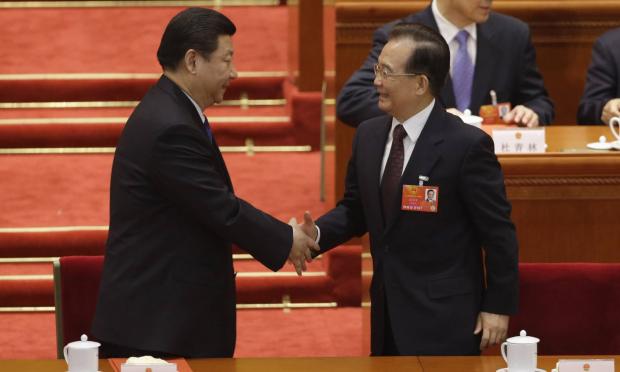Blocking Wen Jiabao’s article reflects atmosphere of extreme censorship in Xi Jinping-led China Former Premier of China Wen Jiabao recently has had close encounter with the increased, amplified censorship in the country which he ruled for 10 years. His personal essay on his deceased mother, which was published in a newspaper, was instructed to be removed and be blocked on internet. China is known for its restrictive media environments but Jiabao’s essay did not make for censorship since it did have any critical observation or remarks about the current Chinese dispensation.
The development reflects of deep-seated anxiety in the China Communist Party (CCP) about any threat to Chinese President Xi Jinping’s image since the decision to block Jiabao’s article must have come from higher authorities, said Xiao Qiang, editor-in-chief of the China Digital Times. “For highly political figures like Wen Jiabao, any decision about his words or actions not only has to come from the central propaganda department, it may come from even higher up, such as the central office. It is Xi Jinping's own insecurity about his authority and image within Chinese society that leads to such censorship,” said Xiao. Incidentally, Jiabao had supported Jinping as the next leader of the CCP in 2012.
China has been known for its poor ratings when it comes to freedom of speech. However, situation is getting worse since Xi Jinping took over the reins of China in 2013. The ruling communist party actively indulges in censoring any news, commentary or even social media posy that are critical of the government, particularly, Jinping. The mild opinion of Jiabao really could not make any damage to Jinping’s tightened control over Chinese media and his image. But he does not seem to leave a room for slightest criticism. Whatever considered as “rumours” can land people in jail.
And a cybersecurity law allows Chinese authorities to have control and access to data and prevent unauhtorised VPN connection. The Xi Jinping government tried to keep control over political, economic, cultural and technological activities in the name of “internet sovereignty.” There has been significant reduction in social media discussions by Chinese people on social and political reforms since 2013. China now has become a place for the most sophisticated online censorship operation in the world.
In his essay, Jiabao said “In my mind, China should be a country full of fairness and justice, always with a respect for the will of the people, humanity, and human nature.” It may have been perceived as today’s China is not the same country. The Communist Party leader may not want to allow any of kind of doubts among people ahead of the party’s centenary in July this year. Not just Jiabao’s article disappeared from the mainstream news outlets but major social media platforms, likes of, WeChat and Weibo too restricted users from sharing it, citing violations of terms of operation. Cai Xia, who is a Chinese dissident and scholar of political theory, said “This shows just how much the totalitarian regime in mainland China fears democracy and the rule of law. They are afraid to give rights to the people,” Xia said. China ranked 177th out of 180 countries in worldwide index of press freedom, according to media watchdog Reporters Without Borders.
“By relying on the extensive use of new technology, President Xi Jinping has succeeded in imposing The Chinese authorities have tightened their grip on news and information even more since the emergence of Covid-19,” said the watchdog in its report. According to the China Internet Network Information Center (CNNIC), there were 989 million internet users in China at the end of 2020. China spent over USD 6.6 billion on schemes to monitor and guide online public in 2020, making internet censorship one of its top priorities.
Cyberspace Administration of China, an entity that is personally supervised by Jinping, as many as 8,688 websites were termed illegal and subsequently cancelled or reported during July-September 2020. Also, 954 websites were warned, 489 websites were suspended, 489 websites were temporarily suspended, as per the CAC data. 9 The “Great Firewall” that censors the Internet in China is leading to regular incidences content removals, website closures, and social media account deletions. There is extreme censorship and penalties for once-tolerated activities, which even does not excuse China’s former leaders.















